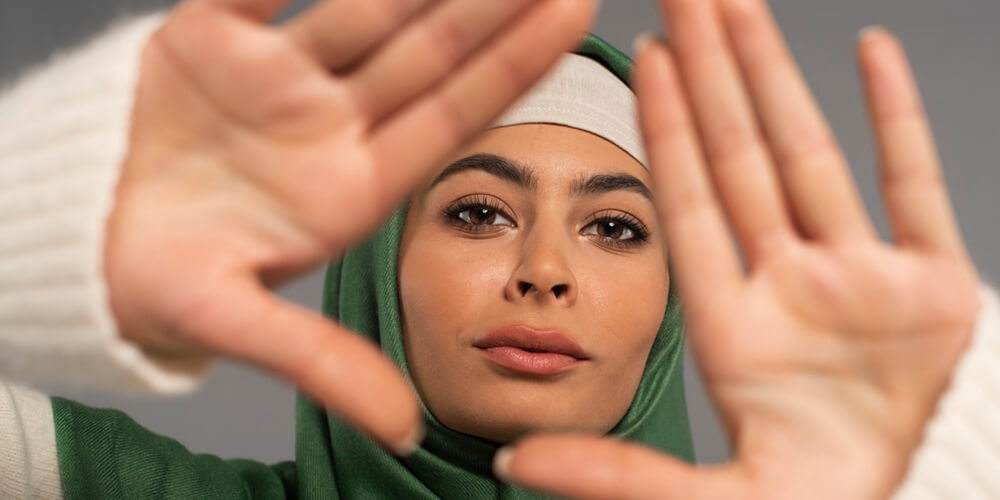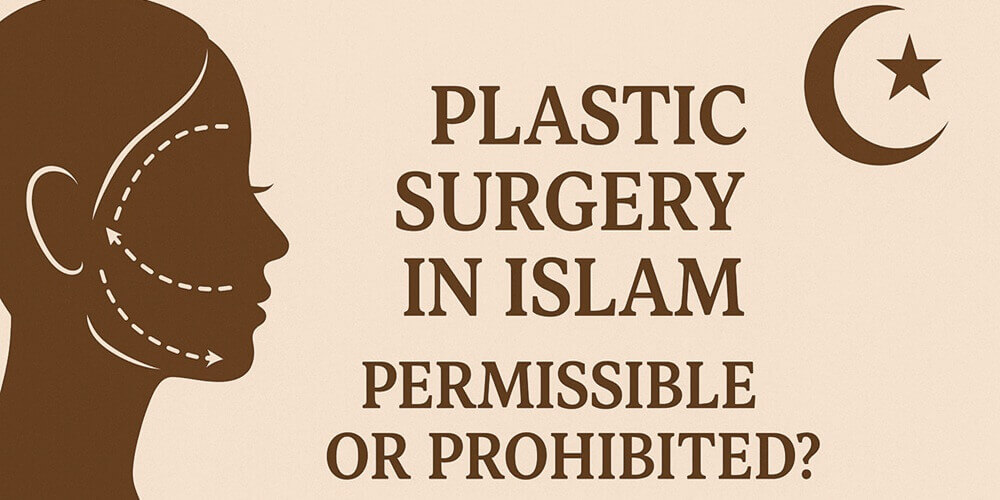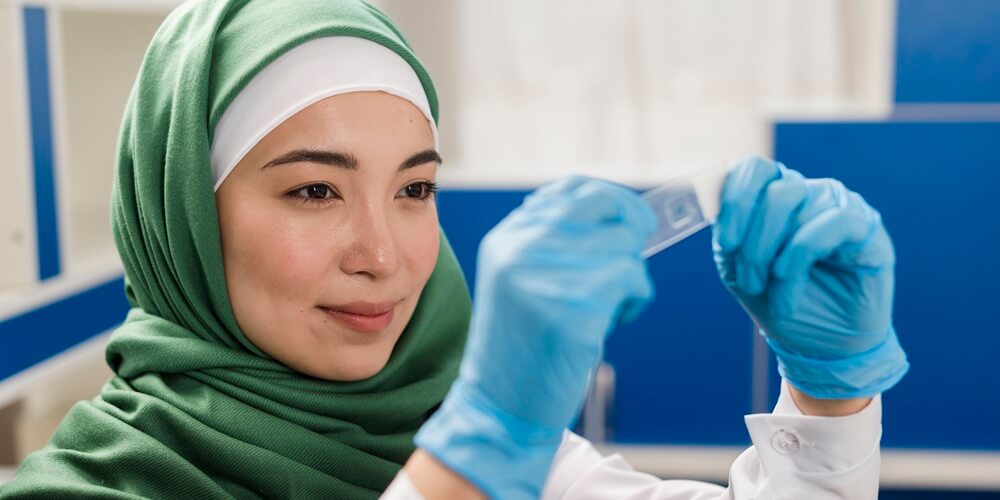Home » Plastic Surgery in Islam: Permissible or Prohibited?

Plastic surgery is a surgical specialty involving the restoration, reconstruction, or alteration of the human body. And while the goal is to return the body to as close to the way we originally knew it, we must accept that identity is a part of our body, and this link is made even clearer through death. The decision whether to undergo plastic surgery is individualized, and patients request plastic surgery for different reasons; to reconstruct an injured or disfigured body part, to change a congenital or developmental anomaly, and, even, to change a body part to meet a predetermined community or tribal standard of beauty.
Plastic Surgery is classified typically under three broad sub- divisions. Reconstructive surgery in Islam seeks to mend parts of the body that have been injured or deformed. Reconstructive surgery is about altering something that is normal, for the purpose of making it better aesthetically (according to the patient’s desire). Cosmetic surgery is performed to shape an abnormal body part in order to improve the appearance, lip surgery for cleft lip and palate is cosmetic surgery, even though such a repair may be a reconstruction to the patient. Plastic surgery is in a golden age, and its use has developed greatly with social progress, and its positive tools never stop and continue to develop.

The issue of plastic surgery in Islam is somewhat controversial, and some Muslims consider all surgeries as impermissible. Plastic surgery is therefore admittedly considered, it is obvious, also in general to be prohibited according to Islam. The plastic-surgery which eradicates some of the physical defects (on removing of which the order of the Creator cannot be on the basis of the responsibility of man), such as mending of face broken in an accident, or construction of the nose in place of a disfigured one of the new-born child is valid and even wajib. Any other surgery aimed at altering the original image is haram (forbidden).
Cosmetic surgery is a controversial issue in Islam among religious authorities around the world. It is broadly categorized as reconstructive surgery and cosmetic surgery. Reparation surgery is generally considered, even mandatory, as it seeks to return to normal body functions. On the contrary, cosmetic surgery promotes the patient’s look and is still considered tearful. Some also rule that cosmetic surgery is haram because it means changing the creation of God, but others say that it is halal if it is done to relieve psychological pain.
Permissibility or prohibition of a hukmát such as plastic surgery is determined by necessary and public interests, disease, harm, ugliness or beauty. Accordingly, some kinds of plastic surgery are forbidden and immoral under some circumstances.
Islamic scholars have categorized human interests into five essential categories: religion, life, lineage, mind, and property. When these interests are threatened, public interests serve to protect them. For instance, in cases of plastic surgery, questions arise about its permissibility: Is cosmetic surgery haram? Is it haram when it concerns these interests or a public need? If deemed haram, under which circumstances? Is it permissible when linked to a desire or disease without affecting essential interests? Voluntary or involuntary plastic surgeries due to diseases or sins don’t fall under these categories but are considered morally valid actions stemming from necessity for life and health protection.
The argument for prohibition claims that altering Allah’s creation is a condemnation of it. Artificial changes intervene in nature, meaning that beauty standards should reflect Allah’s creation. The hadith, “Allah has wretched people; they changed the creation of Allah,” highlights this prohibition. Such interventions aim for self-conceit, contradicting the hadith against it. Allah’s words also warn against pride, boasting, and dishonesty toward others.
Conditions for prohibition included:
(a) procedures aimed at enhancing unowned beauty,
(b) altering previously owned beauty into another form, and
(c) improving defects mainly in body parts essential for human activities.
This aligns with A’ishah’s hadith stating, “The Prophet prohibited women from plucking their eyebrows or changing Allah’s creation.” Thus, shaping eyebrows is forbidden as it changes God’s creation. The prohibition also applies to those with normal conditions, lacking any damage like scars or broken noses.

The discussion of the permissibility of plastic surgery in Islam is very complicated because the scholars’ arguments can be divided into two different groups: for and against approval.
Supporters of plastic surgery argue it aligns with Shariah by promoting health and preventing psychological harm. This is deemed acceptable when body shape causes psychological distress. Genetic unattractiveness is seen as valid for aesthetic reasons, with some scholars viewing it as a form of medicine that enhances the body’s appearance. Many jurists permit procedures to rectify God-given deformities, as these corrections help alleviate feelings of ugliness and protect personal dignity.
“What if I could actually look more like the one I want to merge into?” This question resonates with many. For others, plastic and cosmetic surgery is a routine thought. It is viewed as an admirable quest as well as trivial daydreaming; a positive way of coping, and also a powerful weapon. Hitchins is right — cosmetic surgery has to do with improving the body and correcting perceived deficiencies. You’re doing it just to look great, which is usually if not often considered immoral/incorrect (unless it’s the reversal of permanent disfigurement or something).
On plastic surgery halal or haram, it is a subject of debate whether cosmetic surgery for the purpose of beautification is allowed in Islam. This discussion is by the same experts, and we let the answer up to fuqaha (cases). Islamic injunctions are supportive of measures which enhance external beauty with full respect for the individual, especially for accident victims and burn patients. The goal may be to remove an ugly birthmark or disfigurement.
Cosmetic procedures modify the body, which may be seen as prohibiting the natural or God-given form. These operations pose risks, including injury and potential death from side effects. Concerns aren’t just about injection dangers but also about transformation outcomes. The body is a divine gift, and individuals must decide to accept or reject it. Those opting for cosmetic procedures may raise questions about underlying greed.
From an intellectual perspective, cosmetics are deemed harmful, causing mental and physical damage. Violating the body’s natural constitution leads to dissatisfaction. Sharia emphasizes protecting the intellect, and cosmetic procedures can harm it. The pursuit of a perfect body increases vulnerability to procedure-related injuries, making it a significant reason for prohibition from the intellect’s viewpoint.
Under Islamic law, individuals are forbidden from changing “the creation of God,” which could include plastic surgery. But is acceptable when it is used to restore to normal form and function a part of the body damaged by disease, injury, or congenital defects, Enable to correct severe psychological problems like for example, Major deformity. In such cases, the moral permissibility of plastic surgery is taken up as similar to the treatment of any other ailment.
Doctors must carefully evaluate cases before agreeing to perform the operation, taking into account the physical and emotional state of the patient. The organ involved should generally be functional; cosmetic surgery to enhance appearance or gain a new look is prohibited as it alters Allah’s creation without urgent need. Moreover, cosmetic procedures often lead to significant psychological dissatisfaction, as statistics suggest.

It depends on the purpose. Reconstructive surgeries for medical purposes — like fixing deformities or healing injuries — are generally considered legitimate, and sometimes even necessary. But cosmetic surgeries without any medical reasons are generally considered haram for they change Allah’s creation.
Plastic surgery is permitted if it is deemed necessary to restore normal body function or appearance that has been lost because of congenital defects, accidents or disease. It may also be regarded as acceptable if it treats a major psychological problem due to physical appearance.
Cosmetic surgery is a controversial matter because of the issues surrounding changing the body that God gave us. Some commentators say it reflects dissatisfaction with God’s creation; others allow it for purposes of relieving mental or emotional harm.
Hello!